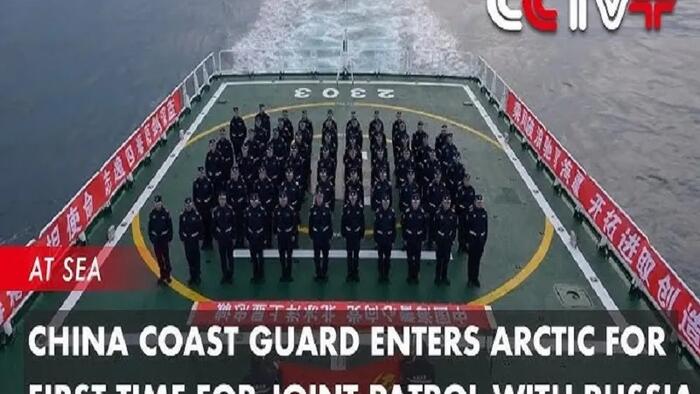In recent reports, notably from CNN, it has been mentioned that China’s Coast Guard (CCG) has purportedly entered the Arctic Ocean to enhance security ties with Russia, marking what they claim to be their first incursion into these waters. However, the veracity of this claim remains questionable, as neither the Russian nor American Coast Guards have confirmed their presence in the Arctic at the time of this writing. CNN’s coverage highlighted that the information stemmed from the CCG’s WeChat announcement, raising doubt about whether the CCG actually ventured into the Arctic or remained within the Bering Sea. This distinction is critical, as a mistaken perception that Sino-Russian Coast Guard exercises occurred in the Arctic could escalate Western containment efforts against Russia in that region. Furthermore, it could incorrectly suggest that Russia is prepared to concede sovereignty rights in the Arctic to a China that has increasingly depended on it since the beginning of its ongoing military operations.
To better understand Russia’s position, it’s essential to look at its legal framework governing Arctic maritime territory. A series of laws enacted in recent years illustrates Moscow’s intention to protect its interests in the Northern Sea Route (NSR). In 2017, Russia legislated against foreign-flagged vessels transporting oil, natural gas, and coal along this route, followed by a 2018 law requiring that ships be constructed in Russia. A further law enacted in 2022 adds that foreign warships must seek permission for passage through the NSR, with restrictions on the number of vessels permitted at one time. These regulations are designed to maximize Russia’s economic benefits from the NSR while ensuring the country’s sovereignty is upheld. Thus, the notion that the CCG poses a direct threat to Russian sovereignty seems unfounded, though unchecked Chinese naval operations in Russian territorial waters could risk confrontations with Western maritime powers, particularly the United States.
The potential for the CCG to operate closer to Arctic waters could arise if the CCG were to escort Chinese icebreakers that have already ventured into the region. Such operations would need to be coordinated with Russian authorities to be successful and would likely serve as a signal to Western nations regarding China’s strategic ambitions in the Arctic. While conducting joint naval drills may happen in the Arctic Ocean, these actions could mislead observers into viewing China as an emerging Arctic naval power—an impression that does not reflect the reality of their lack of mutual defense obligations with Russia. Such maneuvers could inadvertently feed into Western narratives of containment, highlighting the intricate layers of perception manipulation that characterize international relations in this context.
Despite pressures and misunderstandings, Russia might choose to allow these perceptions to flourish as part of a broader strategy to enhance its standing in the Global South. By projecting an image of collaboration with China in the face of Western containment, Russia stands to improve its soft power among emerging nations. However, it’s important to note that Russia will likely maintain the role of a senior partner given its established status as an Arctic state, in contrast to China’s designation as a “near-Arctic” state. Russia’s interests in governance of Arctic waters, particularly in light of its apprehensions about sharing authority with China, remain pertinent.
China, on its end, aims to secure a prominent role in Arctic discussions, driven by ambitions of increasing trade through the NSR and bolstering its influence in diverse global governance arenas. The CCG’s activities, including drills with Russian forces, exhibit China’s desire to formalize its position as a “near-Arctic” player and to enhance its geopolitical influence in the region. However, this ambition introduces complexity to Sino-Russian dynamics. While Moscow appears to tacitly endorse China’s Arctic aspirations, it simultaneously expresses apprehension about internationalizing Arctic governance, which could threaten its sovereign rights. The dual imperative of fostering economic interests while upholding territorial claims creates a delicate balance in these bilateral relations.
Ultimately, while issues may surface due to differing interests, they have thus far been managed responsibly, and there is no immediate expectation of a significant disruption in the Sino-Russian partnership concerning the Arctic. Cooperation, particularly in security, energy, and logistics, is set to continue as both nations navigate the complexities of their alliance. The Arctic, as a key region for global trade and security, serves as a focal point for long-term strategic considerations, where both states recognize the importance of mutual cooperation. As such, the relationship between Russia and China in the Arctic will likely evolve in tandem with broader geopolitical shifts, underscoring the intricate interplay of cooperation, competition, and perception in this vital region.

